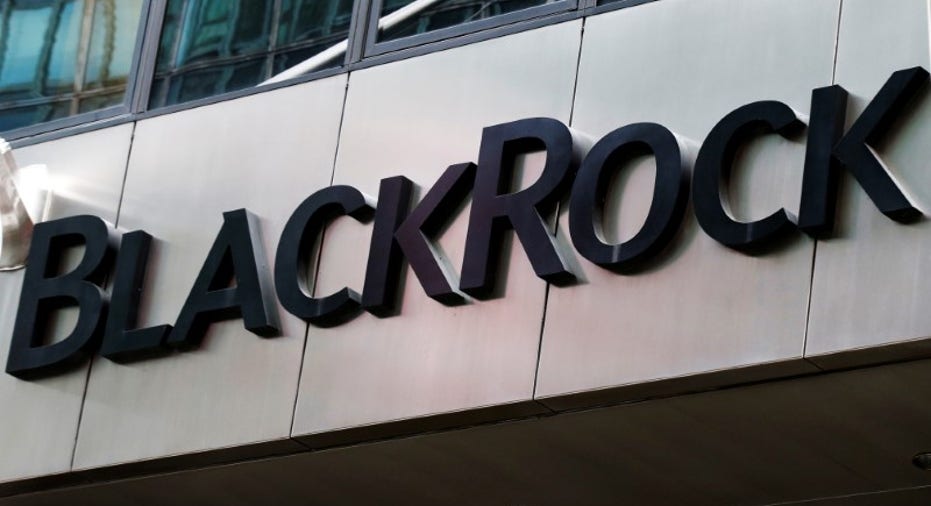BlackRock Shake-Up Favors Computers Over Humans

BlackRock (NYSE:BLK) has started a shake-up of its stock picking business, relying more on robots rather than humans to make decisions on what to buy and sell.
The firm has become the world's largest asset manager, with $5.1 trillion in total assets, in large part because of its dominant position in low-cost, passive investment such as exchange-traded funds.
But its stock-picking unit - which depends on money managers to choose investments - has lagged rivals in performance and clients have been withdrawing their money.
The company has taken the view that it is difficult for human beings to beat the market with traditional bets on large U.S. stocks. So the firm on Tuesday announced an overhaul of its actively-managed equities business that will include job losses, pricing changes and a greater emphasis on computer models that inform investments. Seven stock portfolio managers are among several dozen employees who are expected to leave the firm as part of the revamp, a person familiar with the matter said.
The firm is offering its Main Street customers lower-cost quantitative stock funds that rely on data and computer systems to make predictions, an investment option previously available only to large institutional investors. Some existing funds will merge, get new investment mandates or close.
The changes are the most significant attempt yet to rejuvenate a unit that has long lagged behind rivals in performance. Clients have pulled money from the actively managed stock business in three of the past four years even as BlackRock's total assets climbed to a record $5.1 trillion. BlackRock had $275.1 billion in active stock assets under management at the end of December, down from $317.3 billion three years earlier.
The author of the company's new strategy is former Canada Pension Plan Investment Board Chief Executive Mark Wiseman, who was hired last year to turn around the stock-picking business. The effort is the first test for Mr. Wiseman, viewed by some company observers as a potential successor to Chief Executive Laurence Fink.
Mr. Wiseman -- who spent his first six months examining the strengths and weaknesses of the business with staff, consultants and clients -- said the firm is trying to play offense as smaller rivals struggle.
"We're in really rough seas, but BlackRock is an aircraft carrier," Mr. Wiseman said. "Everyone else is in dinghies, and they're bailing like hell."
Many other firms that specialize in handpicking stocks are also struggling with low returns and shifting investor tastes. Since the 2008 financial crisis, clients across the money-management industry have moved hundreds of billions of dollars to lower-cost funds that track indexes, known as passive investment funds, instead of aiming to beat the market.
BlackRock has also benefited from investors' embrace of passively managed investments. The amount overseen by the entire firm has been bolstered by its exchange-traded-fund business, which comprises about a quarter of all assets under management. It also sells investment and risk-management technology, giving it a broader mix of businesses than many of its rivals.
The effort to improve the performance of BlackRock's stock-picking unit isn't the first but goes further than past changes. In 2012, BlackRock replaced management teams of some of its largest stock funds and analyzed the investment process of each team.
Yet by the end of last year more than half of the assets in BlackRock's traditional actively managed stock products underperformed their benchmarks or peers over one year, up from less than a quarter a year earlier, according to the company's earnings report. Over three years, 38% underperformed, compared with 40% at the same time in 2015.
Under Mr. Wiseman's plan, BlackRock will change the investment mandates of some funds and focus on a slightly smaller lineup of stock products that includes nine quantitative funds that will be available to individual investors. In some cases, those funds come at roughly half the cost of those they replace.
The firm will also run country- and sector-focused stock products in which executives believe they can outperform, funds that pursue specific outcomes such as social impacts, and riskier funds that make more concentrated bets. The changes weed out actively managed stock funds that closely follow indexes.
The planned price cuts involved in creating that lineup will result in a loss of $30 million in revenue annually, the firm said. The firm will take a $25 million charge in the first quarter to fund layoffs, staff relocations and research investments.
San Francisco will become the firm's hub for quantitative investing, and some emerging-markets staff will move to Asia from London. Another change, Mr. Wiseman said, will be a better integration of research and data informing both traditional and quantitative stock picks.
Despite immediate job cuts, executives said that, 18 months from now, the firm will have roughly the same number of staff in the unit because it will continue to hire people as needed.
Executives acknowledge potential risks from the staffing and fund changes. Too much manager turnover at funds can spook customers and trigger withdrawals. And changing fund mandates can lead clients who want what they initially signed up for to head for the exits.
But executives said the planned moves will better position the business to be competitive longer term and take advantage of BlackRock's scale.
"We should be acting like BlackRock, not a part of BlackRock," Mr. Wiseman said.
Write to Sarah Krouse at sarah.krouse@wsj.com



















